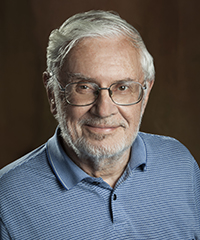Toby Lab Publication: Hey, Sara, Dayjah Whyte, Minh-Chau Hoang, Nick Le, Joseph Natvig, Claire Wingfield,
Charles Onyeama, Judie Howrylak, and Inimary T. Toby. "Analysis of CDR3 Sequences
from T-Cell Receptor β in Acute Respiratory Distress Syndrome." Biomolecules 13, no. 5 (2023): 825.
Soper Lab Publication: Soper, D. M., T. R. Raffel, J. P. Sckrabulis, K. L. Froelich, B. A. McPhail, M.
D. Ostrowski, R. L. Reimink, D. Romano, S. P. Rudko, and P. C. Hanington. "A novel
schistosome species hosted by Planorbella (Helisoma) trivolvis is the most widespread
swimmer's itch-causing parasite in Michigan inland lakes." Parasitology 150, no. 1 (2023): 88-97.
Soper Lab Publication: Patterns of gene expression in ovaries of sexual vs. asexual lineages of a freshwater
snail, Frontiers In Genetics 15 July 2022.
Soper Lab Publication: Growth and Cyclin-E Expression in the Stony Coral Species Orbicella faveolata Post-Microfragmentation, The Biological Bulletin, February 2022, volume 242, number 1: 40-47.
Soper Lab Publication: Direct evidence for increased disease resistance in polyandrous broods exists only
in eusocial Hymenoptera, BMC Ecol Evo 21, 189 (2021).
Toby Lab Publication: A Data Report on the Curation and Development of a Database of Genes for Acute Respiratory
Distress Syndrome, Frontiers In Genetics 09 December 2021.















